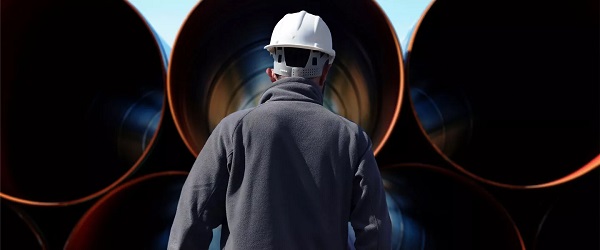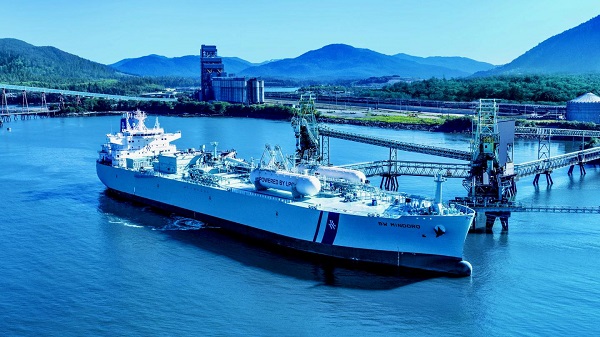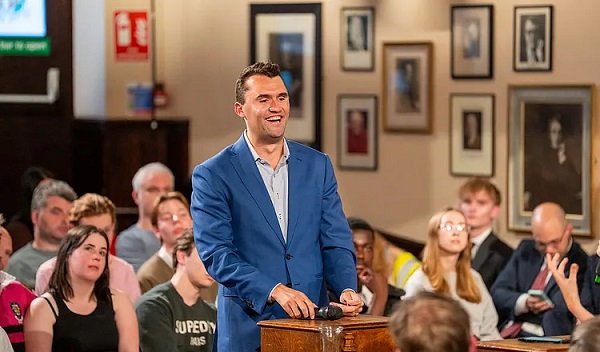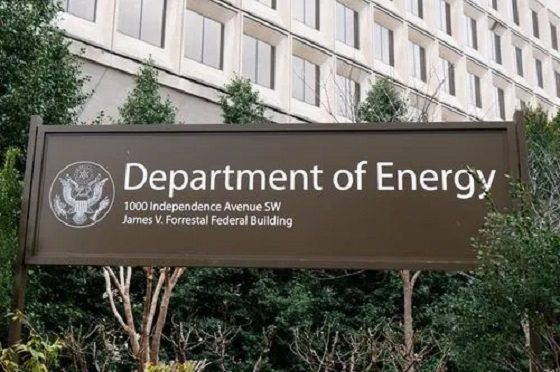Energy
First public comments from Elon Musk following Twitter bid. There’s a Plan B

The TED Talks channel features talks, performances and original series from the world’s leading thinkers and doers. Subscribe to our channel for videos on Technology, Entertainment and Design — plus science, business, global issues, the arts and more.
In this unedited conversation with head of TED Chris Anderson, Elon Musk digs into the recent news around his bid to purchase Twitter..
and gets honest about the biggest regret of his career, how his brain works, the future he envisions for the world and a lot more.
If you love watching TED Talks like this one, become a TED Member to support our mission of spreading ideas: http://ted.com/membership
Follow TED! Twitter: http://twitter.com/TEDTalks Instagram: https://www.instagram.com/ted Facebook: http://facebook.com/TED
LinkedIn: https://www.linkedin.com/company/ted-… TikTok: https://www.tiktok.com/@tedtoks

Visit http://TED.com to get our entire library of TED Talks, transcripts, translations, personalized talk recommendations and more.
Alberta
Federal policies continue to block oil pipelines

From the Fraser Institute
By Tegan Hill and Elmira Aliakbari
Prime Minister Carney’s recently released list of five projects—which the government deems to be in the national interest and will expedite—doesn’t include a new oil pipeline for western Canada in general or Alberta in particular. The reason given was that no private developer stepped forward to finance or build one. But the reason for that is not a mystery: Justin Trudeau’s damaging energy policies continue to drive away oil and gas investment even though his successor campaigned on a different, more pragmatic approach. It’s no wonder Albertans are frustrated.
Promising to make Canada the world’s leading “energy superpower,” the Carney government in the spring introduced Bill C-5, the “Building Canada Act,” to give the federal cabinet sweeping powers to circumvent existing laws and regulations for projects deemed to be in the “national interest.” In effect, cabinet and the prime minister are empowered to pick winners and losers based on vague criteria and priorities. But while specific projects will be expedited, so far nothing has been done to undo the damaging federal policies that have hamstrung Canada’s energy sector over the last decade.
Trudeau-era changes to the regulatory system for large infrastructure projects included: Bill C-69 (the federal “Impact Assessment Act”); the West Coast tanker ban (as spelled out in federal Bill C-48); and the federal cap imposed exclusively on oil and gas emissions. These have hindered energy investment and development and impeded prosperity, not only in energy-producing provinces, but across the country.
The Energy East and Eastern Mainline pipelines from Alberta and Saskatchewan to the east coast would have expanded Canada’s access to European markets. But the Trudeau government rendered the projects (Energy East and the Eastern Mainline) economically unprofitable by introducing new regulatory hurdles that ultimately forced TransCanada to withdraw from the project.
A year after taking office, the Trudeau government simply cancelled the Northern Gateway pipeline, an already approved $7.9 billion project that would have transported crude oil from Alberta to the B.C. coast, thus expanding Canada’s access to Asian markets. As for Trans Mountain, the one pipeline project that did survive the Trudeau years, after the private investor was frightened off by regulatory hurdles and delays and the federal government took over, costs sky-rocketed to $34 billion—more than six times the original estimate.
With policies like these still in place, it’s no wonder investors aren’t lining up to put big money into Canadian oil and gas. Just how great the discouragement has been is indicated by the 56 per cent inflation-adjusted decline in overall investment in the oil and gas sector between 2014 and 2023 (from $84.0 billion to $37.2 billion).
That decline in investment has had and will continue to have big consequences for the western provinces, particularly Alberta, where energy is a key part of the economy. But it would be a mistake to think the costs are limited to Alberta. From 2007 to 2022, Albertans’ net contribution to federal finances (total federal taxes they paid minus federal money spent on or transferred to them) was $244.6 billion. A strong Alberta helps keep taxes lower and fund public services across Canada.
Canada urgently needs new oil pipelines to tidewater. The U.S. is currently the destination for 97 per cent of our oil exports. This heavy reliance on a single customer leaves us exposed to policy shifts in Washington, such as the recent threat of tariffs on Canadian energy. Expanding pipeline infrastructure both westward and eastward would help diversify our export market into Asia and Europe, as well as strengthen our energy security.
Prime Minister Carney’s short list of projects is another blow to western Canada, and especially Alberta. There’s an obvious reason no private developer has stepped forward to finance or build a new oil pipeline: the Trudeau government’s damaging energy policies. The federal government needs to undo these policies and allow the private sector to make Canada an energy superpower.
Canadian Energy Centre
AltaGas boosts Canada-Asia energy trade with new butane exports

From the Canadian Energy Centre
Demand for versatile fuels rising to power higher living standards
A deal to supply Asian customers with butane shipped from the coast of B.C. promises to expand Canada’s global energy footprint, underscoring untapped potential and the benefits of diversifying beyond the U.S. market.
Butane and propane are what’s known as liquid petroleum gases (LPGs).
Produced during natural gas processing and oil refining, these versatile energy products are in high demand for a wide range of uses including feedstock for plastics and synthetic rubber production, fuels for heating and cooking, and solvents in industrial applications.
“Demand remains strong going forward for the Asian markets as consumers continue to increase living standards and income levels and use more of the everyday items that we take for granted,” said Martin King, managing director of North America energy market analysis for Houston-based RBN Energy.
The new deal commits Calgary-based AltaGas to supply German chemical giant BASF with butane for chemical manufacturing and industrial use in Asian markets.
Butane and propane from Alberta can be shipped by rail to reach terminals on the West Coast, including the AltaGas Ridley Island Energy Export Facility that is under construction near Prince Rupert.
Known as REEF, it is an expansion of the company’s LPG export operations that is scheduled to start operating in 2027. AltaGas opened Canada’s first marine propane export terminal on Ridley Island in 2019.
BASF president of global procurement Matthias Dohrn said partnering with AltaGas secures “reliable and competitive access” to butane from Western Canada.
While details on the scope of the agreement were not released, King said AltaGas is already talking about expanding REEF capacity by 2030.
“I suspect that the expansion has a good chance of going ahead given that the demand for LPGs out of Asia has remained very robust,” he said.
Canada’s success in growing propane exports offers a model for butane’s potential.
According to the Canada Energy Regulator (CER), propane exports – most of which come from Alberta – have more than doubled over the past decade as the new B.C. terminal infrastructure came online.
As of June 2025, shipments to non-U.S. locations were nearly even with exports south of the border, CER reports.
According to the Canadian Propane Association (CPA), the largest customers after the U.S. are Japan, South Korea and Mexico.
Earlier this year, the CPA joined Alberta government officials, industry representatives and Indigenous leaders on a trade mission to Japan aimed at diversifying Canada’s energy exports.
“Canadian propane, with its lower carbon footprint, is uniquely positioned to support Japan’s decarbonization efforts,” said the CPA’s President and CEO Shannon Watt.
“By collaborating with Japan, we can demonstrate how Canadian propane meets the demand for sustainable energy solutions while enhancing energy security in a complex geopolitical landscape.”
-

 Frontier Centre for Public Policy2 days ago
Frontier Centre for Public Policy2 days agoCharlie Kirk Fought A Progressive Ideology That Punishes Truth
-

 Censorship Industrial Complex2 days ago
Censorship Industrial Complex2 days agoMedia’s Psyop Against Climate Scientists
-

 Business2 days ago
Business2 days agoCanadian gov’t spending on DEI programs exceeds $1 billion since 2016
-

 Crime2 days ago
Crime2 days agoCharlie Kirk’s Widow Says She Forgives Her Husband’s Assassin During Memorial
-

 Bruce Dowbiggin1 day ago
Bruce Dowbiggin1 day agoChoking The Night Away: Can Blue Jays/ Tigers Recover?
-

 Sports1 day ago
Sports1 day agoCFL Evolution! Canadian Football League moving field goal posts, changing “rouge” rules, shrinking end zone and field size!
-

 Opinion1 day ago
Opinion1 day agoApproximately 100,000 people join Charlie Kirk’s wife Erika, President Trump, VP JD Vance, RFK Jr., for Charlie’s memorial service
-

 armed forces1 day ago
armed forces1 day agoSecretive Lockheed Martin Skunk Works reveals latest high-tech military drone






